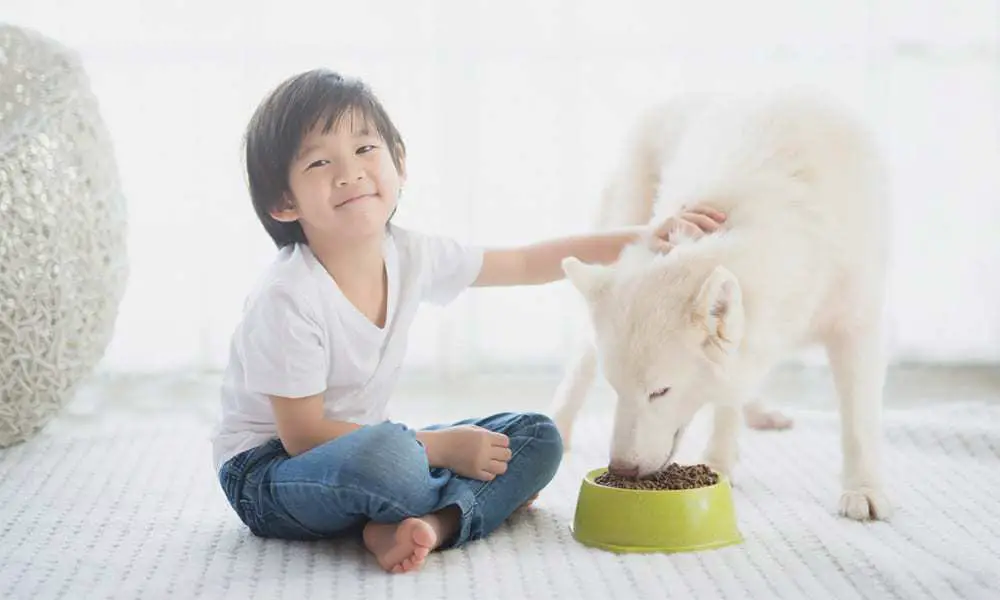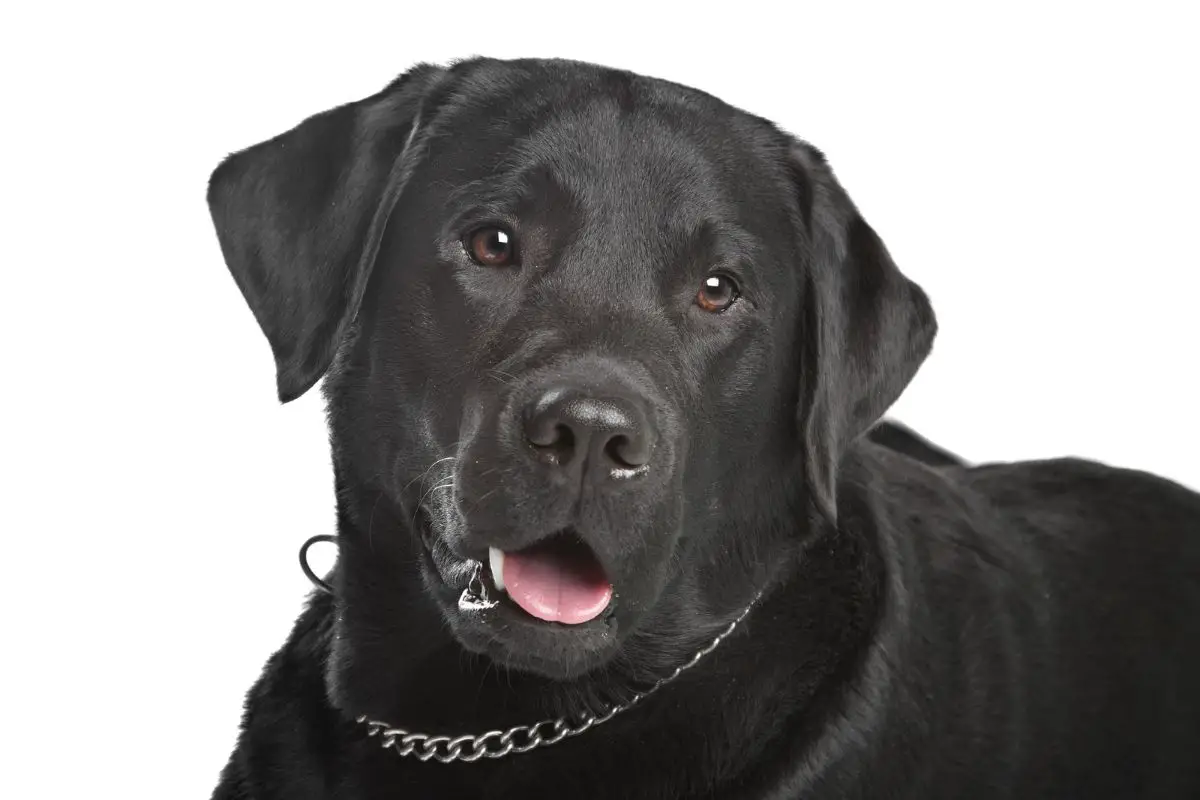This post contains affiliate links.
Dogs usually do anything for food. They use their puppy eyes to beg and plead and do not rest until they are offered that prized bowl of food. However, if your dog is happy to gobble his meals only when you are around him, and refuses to even look at his food if you are not in the same room, then you are not alone.
Your dog may not eat his food unless you are present because your dog is accustomed to your presence during mealtime. Your absence might make them feel anxious and stressed, causing them to reject the food in front of them.
It might seem irrational when your dog refuses to touch the food in your absence but licks the bowl clean the moment you come through the door. You might wonder what leads them to lose their hearty appetite, and regain it the moment you are back in the room with them. There are several explanations for this behavior.
Table of Contents
Dogs Enjoy Meals in the Company of Their Owner
Though dogs have been domesticated for ages, there are some inherent wolf-like traits that they still continue to inherit from their wild ancestors. Wolves hunt and eat in packs, and dogs, too, have a similar need for a feeling of community.
Your dog will feel more secure when he is around you, and this becomes more apparent during meal times. It also gives your dog an opportunity to impress you by showing off their munching skills.
It Is Difficult for a Dog to Eat on Its Own if It Has a History of Supervised Eating
Dog owners may, unknowingly, establish a history of supervised eating with their dogs. This could be partly due to the training that the dog received when it was a pup. During these training sessions, owners may have showered verbal praise on the dogs when the dog would eat their meals properly.
This practice often causes the dogs to expect that the owner will be physically close to them during every meal. Naturally, when this expectation is not met, the dog then gets confused and sometimes even agitated and refuses to eat.
Sensing Danger Often Makes a Dog Forget About Food
When the owner is not present in the same room, some dogs get jittery and afraid. As a defense mechanism, their brains egg them on to transform into a “guard dog” mode. The dog’s mind is too busy assessing threats.
The dog usually waits by the door or keeps a watch from the window, ready to fend off any intruder, and the dog continues to stay in this state till the owner returns. During this time, the dog stays in a high alert state, and food is no longer their priority.
Dogs Associate Their Owner’s Presence With a Safe Environment
While some dogs are comfortable with the idea of spending a few hours alone, others are more sensitive, and the owner’s absence triggers an emotional crisis in the dog. The dog may begin to feel unsafe and have a heightened sense of risk perception.
Everyday sounds such as that of an alarm bell ringing, a car horn, or even the noisy construction happening at a neighbor’s backyard will make the dog feel agitated and sometimes, even scared. During these moments, the dog cannot eat a meal on its own. It needs the reassuring presence of its owner before resuming any normal activities.
Dogs See Mealtimes as an Opportunity to Bond With Their Owners
Just as it happens in the wild with the wolf-packs, eating together gives dogs a sense of safety and companionship. In the absence of other pack animals, the dog looks at the owner as his companion in chief. Eating in the presence of the owner feeds to their primal sense of belonging.
Your dog may see eating as a social activity where they get to bond and have some quality time with you. If you are not present in the room, it becomes a natural tendency for your dog to wait for you to return to the room before they continue with their meals.
Separation Anxiety Causes Dogs to Lose Appetite
Often dogs have difficulty in accepting that their owners may step out of the house every once in a while. Though some dogs are okay with spending a few hours on their own, others cannot cope with the absence and become overly nervous.
If your dog gets anxious every time you step out of a room or go out to run some errands, your dog is most likely suffering from separation anxiety.
If a dog suffers from separation anxiety, it can also kill your dog’s appetite. Some dogs will even refuse to snack on treats or chew bones if they suffer from separation anxiety.
Here is a video that shows how a dog suffers from separation anxiety and what one can do about it:
Dogs Tend to Become Stressed in the Owner’s Absence
There are a multitude of emotions that courses through your dog’s mind when you are not around. Your absence may cause stress to your dog, which, in turn, can affect your dog’s eating behavior. It could range from sadness and nervousness to extreme anxiety.
Introducing new pets or other people has also proven to be stressful for dogs. Dogs are usually routine-driven, and any change in an established routine may cause stress and reduce the dog’s desire to eat. During such time, dogs will tend to eat only when they feel safe, most likely in their owner’s presence.
Territory Related Tension Also Causes Loss of Appetite in Dogs
Dogs are territorial by nature. Sometimes, they gain a sense of protection by being around their owner. Their sense of territory in such scenarios is constantly changing as their owner moves from one place to another.
The cliché, “Home is Where You Are,” perhaps originated from this distinct affection that dogs have always shown towards their owners.
It is easy to see why dogs are likely to get apprehensive in the owner’s absence. It affects their sense of territory and makes it difficult for them to relax. Once the owners return, however, the sense of territory is restored, then the dog is ready to dive into his food.
Your Dog May Suffer From a Lack of Confidence in Your Absence
When the owner is not around, dogs often seem confused and unsure if they should go about doing their normal activities. Dogs usually wait for a signal from the owner, or in other words, the owner’s permission before they can continue with any activity, including eating.
It is this lack of confidence in the dog that prevents him from doing his routine activities until he gets the go-ahead from the owner. The book, Lucky Dog Lessons shares the key to overcome some of these basic behavioral problems.
Conclusion
It is normal for your dog to look for you when they eat their food, but they also need to be just as comfortable eating alone when you are not in the same room as them.
Anxiety and stress make them more intent on protecting their territory rather than focusing on their meals. This trait can be easily rectified by training the dog to be alone and encouraging them to have meals on their own, even when you are not in the same room.
Whatever the cause, know that you can fix it with persistence and perseverance. Good luck!
Sources
- The Dodo: Why Won’t My Dog Eat Without Me?
- Petcube: My Dog is Not Eating
- Pets WebMD: Dog Not Eating? Possible Causes and Appetite Solutions
- Nom Nom Now: Why Is My Dog Not Eating?
- Pet Helpful: Why Doesn’t My Dog Eat When I’m Gone?
- Dogtime: Why Doesn’t My Dog Eat Without Me?
- Wag Walking: Why Do Dogs Wait For Their Owners To Eat?
- Animal Wised: Why Does My Dog Only Eat When I’m Around?
Mrdogfood.com is a participant in the Amazon Services LLC Associates Program, an affiliate advertising program designed to provide a means for sites to earn advertising fees by advertising and linking to Amazon.com. We also participate in other affiliate programs which compensate us for referring traffic.





